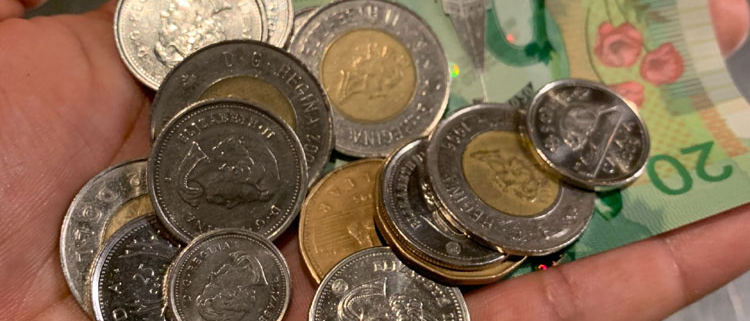Why Have Emergency Cash?
Cash in the Digital Age
We are living in an era where digital transactions and mobile payments are the norm. Many of us rarely carry cash or use it for day-to-day purchases. But when a crisis strikes, relying solely on digital currency can prove challenging. Natural disasters, power outages, or cybersecurity breaches can render electronic payment systems useless, leaving you in a bind. Having physical currency on hand can mean the difference between being able to purchase necessities or being stuck without options.
Lesson Learned: This is not a story of a natural disaster, but rather an experience of not having emergency cash combined with unintentional lack of preparedness. Earlier this year (2023) I travelled to Peru for 3 weeks. Two days before my trip my credit card was breached and rendered useless. I had to take my secondary card that I have with a very small limit on it. I prayed that I wouldn’t experience any financial emergencies whilst away.
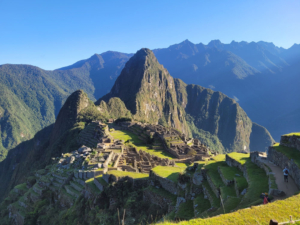
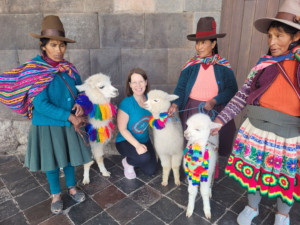
None of my local banks carried Sol (the currency in Peru), so I had to withdraw my spending money in CDN$ and travel through customs in Mexico & Peru to exchange it at a location in Lima, just in case my credit card did not work down there. Many lessons learned from handling credit card breaches, and traveling internationally. Currency was a huge learning curve. In hindsight I should have withdrawn US$ cash before leaving home because American cash was accepted whilst Canadian is not.
Accessibility and Flexibility
Cash is universally accepted. Whether you’re facing a regional power outage or evacuating to a location with limited digital infrastructure, physical currency is accessible. It’s accepted in most places, from local stores to roadside vendors. You can use it for purchasing food, water, fuel, medical supplies, or any other immediate needs during an emergency. No need to rely on ATMs or functioning card readers.
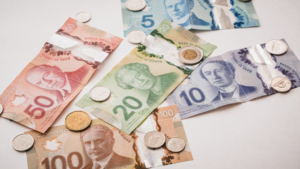
A Sense of Security
In times of crisis, banks and ATMs may become inaccessible or run out of cash quickly. With physical currency in your possession, you have a sense of financial security. You won’t be left scrambling to find a working ATM or competing with others to access your funds. Having cash readily available reduces stress and adds an extra layer of preparedness.
Bartering and Exchange
Emergency situations often require resourcefulness and adaptability. Physical currency can serve as a valuable bartering tool when traditional commerce systems break down. In a crisis, it may be beneficial to negotiate with others for goods or services. Having cash allows you to engage in barter, providing you with a means to trade for items you need or can offer assistance.
Evacuation and Transportation
During evacuations or when on the move, you may find yourself in areas with limited card payment options. Public transportation, hotels, or small businesses may not accept digital payments, and having cash can facilitate your journey. Whether it’s for bus fare, accommodations, or fuel, physical currency ensures you can keep moving.
Just like my trip to Peru, many services required tipping, or cash for taxis, or cash at markets to buy merchandise – all done with Sol.
Planning Your Emergency Cash
Now, let’s consider how to incorporate emergency cash into your preparedness plan:
- Build an Emergency Cash Stash: Start by setting aside a designated amount of cash. Aim for a mix of small and larger denominations to cover various expenses. Store this cash in a secure, waterproof container in your emergency kit.
- Regularly Update Your Cash Reserves: Periodically replenish your emergency cash supply. Adjust the amount based on your family’s needs, potential risks, and inflation.
- Secure and Conceal: Keep your emergency cash in a secure location. Inform trusted family members of its existence and location, so they can access it in your absence.
- Include Coins: Don’t forget about coins, especially for vending machines or other small purchases during an emergency.
- Educate Your Family: Make sure your family understands the value and purpose of the emergency cash and when to use it.
How Much Cash?
The amount of cash to keep in an emergency stash can vary depending on your individual circumstances, location, family size, and specific needs. However, a common recommendation is to have at least enough cash to cover your essential expenses for about 72 hours (3 days) to one week. Here’s a general guideline to help you determine the amount of cash to include in your emergency stash:
- Basic Expenses: Calculate the cost of essential expenses for your family for a week. This may include food, water, transportation, and accommodation if needed. Consider any specific needs your family members have.
- Local Factors: Take into account local conditions and potential risks. If you live in an area prone to natural disasters or where power outages are common, you might want to have a bit more cash on hand.
- Access to Banking: Consider your proximity to banks and ATMs. If you live in a remote area, it may be wise to have more cash on hand.
- Inflation: Keep in mind that the value of money decreases over time due to inflation. Regularly update your cash reserves to account for this.
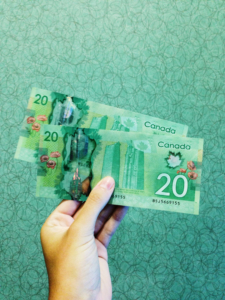
A good starting point is to aim for at least $200 to $300 in small bills and coins, in addition to any larger bills you see fit. However, your individual circumstances may require more or less, so it’s essential to tailor your emergency cash stash to your specific needs.
Conclusion:
Remember to store your cash securely in a waterproof and fireproof container as part of your overall emergency preparedness plan. Periodically review and update your emergency cash stash to ensure it remains relevant and sufficient for your situation.
While we live in a digital age, the importance of physical currency in emergency preparedness cannot be understated. It offers accessibility, flexibility, and a sense of security during times of crisis or unknown. By incorporating emergency cash into your preparedness plan, you enhance your ability to navigate unexpected challenges and ensure that you and your loved ones are equipped to handle emergencies effectively. Preplanning goes a long way!

